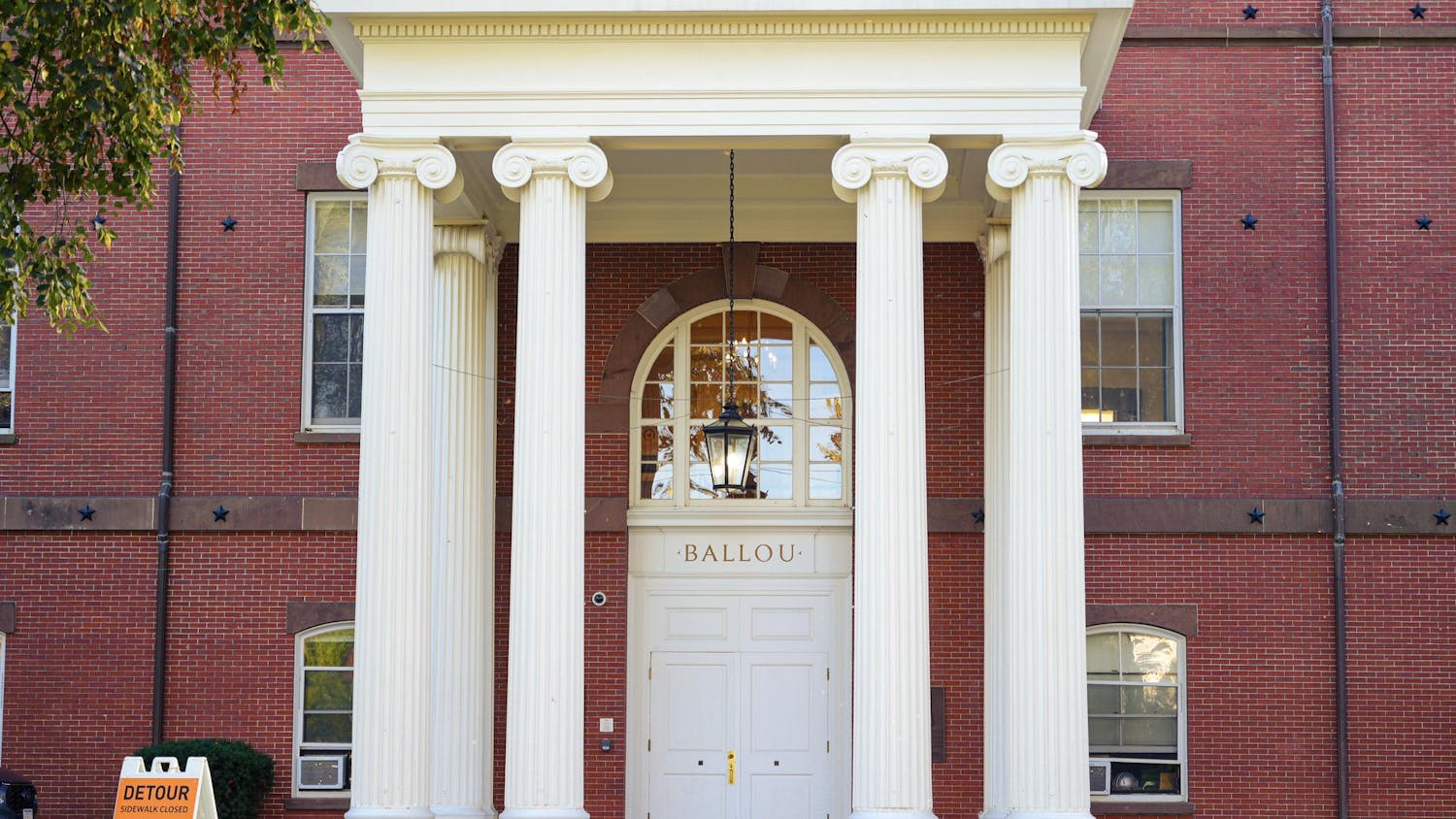Following the defacement of a sign in the African American Trail Project exhibit in Aidekman Arts Center discovered on Oct. 5, University President Anthony Monaco and Provost and Senior Vice President Nadine Aubry issued a statement condemning the vandalism and announced a new initiative by the administration to respond to these acts of hate, in an email sent to the Tufts community on Oct. 10.
Professor Kerri Greenidge, co-director of the exhibit with Professor Kendra Field, confirmed to the Daily that someone had inscribed the word “Fake!” and an arrow on a sign commemorating a student march and die-in protest in Davis Square in 2014. The protest was a demonstration calling attention to the shooting of unarmed black men across the country, and especially the death of Michael Brown in Ferguson, Mo.
The Daily obtained photos of the defacement, which were dated to before school started.
Greenidge explained that the exhibit, from which the sign has since been removed, documents and commemorates the history of African-American, African-descended and Native-American people in Massachusetts.
“Such documentation and publicity defies notions that African descended, African American and Native people are somehow recent arrivals to Tufts and its surrounding towns,” Greenidge said in an email to the Daily.
The defacement marks the third act of hatred on campus announced in less than one month. On Sept. 15, a Jewish student found a swastika carved into their residence hall door. On Oct. 2, a different student found a homophobic slur carved into their residence hall door.
Dean of Student Life and Engagement Christopher Rossi confirmed in an email to the Daily that the investigations into the incidents by the Office of Equal Opportunity and the Tufts University Police Department are still ongoing.
Greenidge addressed the increasing national trend of acts of hate, explaining that hateful views such as racism, homophobia, anti-Semitism and anti-immigrant rhetoric are given platforms in the media and in national discourse.
Greenidge declared the current political and social climate is emboldening people who harbor hateful beliefs to commit acts of hatred on Tufts’ campus.
“It speaks to the depths of political division and ignorance that this person or persons felt comfortable enough to damage a work to which Tufts faculty, students and community members have contributed,” Greenidge said.
In response to the successive acts of hate on campus, Monaco and Aubry announced in their email the development of two Bias Response Teams (BRTs).
The BRTs, separate from the investigative and reporting process, will respond to incidents of bias, discrimination and hatred on campus, “with a focus on community understanding, support and engagement,” according to the email.
Chief Diversity Officers Rob Mack and Joyce Sackey will lead the BRTs, with Mack serving the Medford and School at the Museum of Fine Arts campuses and Sackey serving the Boston and Grafton campuses, according to the email.
Sackey, echoing Monaco’s and Aubry’s email, did not supply more detailed information about the BRTs.
“We anticipate more information will be forthcoming in the near future as we work to implement this new resource,” Sackey said.
Sackey deferred to Executive Director of Public Relations Patrick Collins for further comment.
Collins added that even though it is “too soon to estimate” when the BRTs will be operating and fully functional, the Tufts community can expect to be included in the process.
“We are at the very early stages of the process, and the CDOs will be working with students and others on the make-up of the groups and will explain how students, faculty and staff on each campus can become involved as those plans take shape,” Collins said in an email to the Daily.
Collins explained that the BRTs are intended to do more than simply respond to acts of hate as they are reported.
“They also will suggest proactive measures that promote inclusion, respect and dialogue,” Collins said.
Greenidge praised the BRTs, calling them “a necessary first step,” but called on Tufts to expand its response to include academics as well.
“Additionally, efforts must be made to create a humanities curriculum that uses the scholarship of Tufts faculty to educate students about the causes, consequences and origins of anti-Semitism, homophobia and racism,” Greenidge said.
Greenidge also encouraged students to take advantage of the contributions to this effort already made by the faculty in Africana studies, American studies, colonialism studies and history.
Correction: A previous version of the article "Faculty and administrators discuss new Bias Response Teams, hate incidents" incorrectly spelled Kerri Greenidge's name as "Greenridge." The article has been updated to reflect this change. The Daily regrets this error.
More from The Tufts Daily





